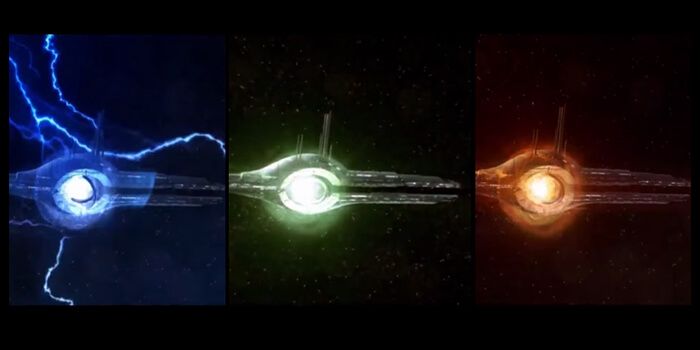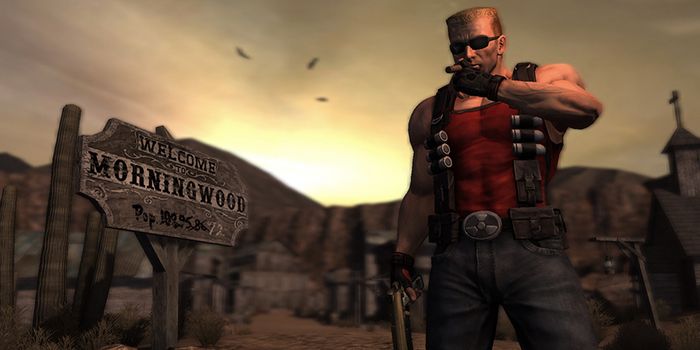At some point in your life—probably at multiple points—you'll play bad games. Maybe you didn't expect much from them, and in that case it's no big deal. In the instance of a highly anticipated game, the stark shortcomings can come as a real shock, making you regret your purchase entirely. Then there are those bad games that leave you feeling super unsatisfied or angry for various reasons, both inexplicable and obvious. They leave you questioning whether you'll ever support that developer again.
What's a gamer to do? If we dropped any game or developer that ever irked us, we'd have very little left to play. But when bad games keep disappointing us, how much (if anything) should we forgive?
Minor Mishaps Are Worthy Of Forgiveness
It's hard to apply absolutes to games—are there any truly good or bad games, or just subjective experiences? More importantly, few games are bad on every level. Some suffer from poor level design, while others lack effective story or character development, while still others just don't measure up to expectations.
This first level of disappointment is a minor one. Not all disappointing or bad games are complete disasters—sometimes it's as simple as being let down due to overhype, or a good series caving to popular trends that don't suit the game.
This happens a lot with including mediocre multiplayer in previously single player games, or with minor annoyances like poor voice acting. These offenses can be jarring, but are relatively easy to forgive. Although they do lead many gamers to question whether they'll prioritize the same developer in the future, particularly if it seems like more universally appealing mechanics are edging out the things we love most about a particular franchise. For example, prior to its release, many complained about Assassin's Creed Brotherhood's inclusion of multiplayer at the perceived expense of the single player.
Small offenses are initially easy to ignore, until they start piling up—that's when things start to get stickier.
Increasing Slights Make Mediocre Games Feel Like Bad Games
When we love a game or franchise, its slights and shortcomings feel a whole lot worse than if they came from a franchise we don't really care about. And the ~$60 cost just makes it worse. If we're going to pump that much money into a franchise—or more, if we're counting DLC and sequels—shouldn't the franchise meet standards?
To some degree, yes. But there's also another side to the argument—paying for one product doesn't mean you're owed more, as author Neil Gaiman explains in this post discussing fan entitlement. There are some obvious differences between Gaiman's point about George R.R. Martin's novels and the world of games—most notably that a book, unlike a game, can't be broken or incomplete upon release—but it's an interesting point nonetheless.
This level of forgiveness is where things start to get a little tougher. Watch Dogs was a solid game, but it wasn't all it was hyped to be—does that diminish the game's quality, or should we take it at face value? You can ask similar questions of games like Dragon Age 2, which faced criticism for its small scale and reduced customization in comparison to Dragon Age: Origins. The game was still solid, despite its departure from previous entries, begging the question of what's more important, meeting our expectations or being a good game in its own right?
Whether or not you jump ship as a fan is entirely up to you. But it's only natural that the threshold for forgiveness gets smaller as missteps pile up or intensify.
Crossing the Line From Annoying to Unforgivable
There are no universal experiences in bad games. Even Duke Nukem Forever, largely dismissed by critics, attracted fans with its unapologetic commitment to fun and humor, even if that commitment was juvenile in nature.
So beyond games that have extreme glitches or are mind-numbingly boring or underdeveloped, what are the unforgivable sins of bad games? Mass Effect 3 had many players calling for a boycott due to the game's less than stellar ending, but Dragon Age: Inquisition went on to be BioWare's most successful launch so far.
We keep buying games with pricey DLC, microtransactions, and bad reviews—are there any bad games so unforgivable as to actually make us stop buying new releases from a developer? Or is the slate always wiped clean with the next shiny new IP?
The gaming community is incredibly diverse, and one person's unforgivable gaming sin is another person's mild annoyance. Making informed decisions about whether bad games are unforgivably bad or whether they just fail to meet our desires can be difficult, particularly when our emotions about our favorite franchises and game characters come into play. Perhaps there's no right or wrong here, just matters of personal taste.
So when is the right time to stop forgiving and start boycotting? Whenever it feels right. That's an admittedly weak answer, but it really is up to you. Useful as reviews and consumer movements might be, we like what we like, and our levels of tolerance for bad games and developer missteps spawn from there.
What bad games are unforgivable in your eyes?


